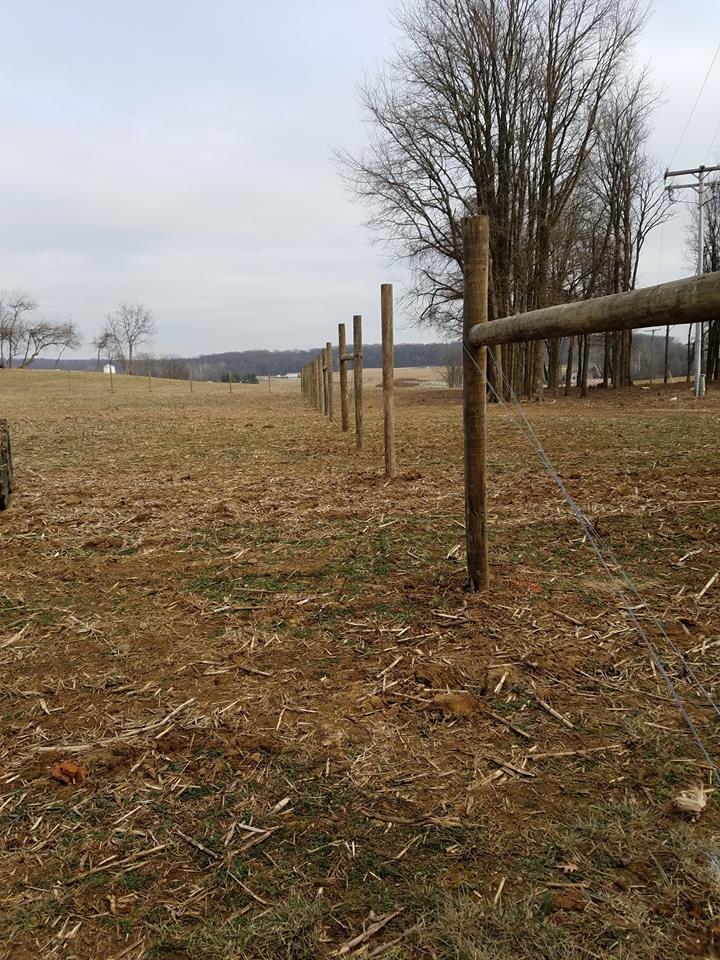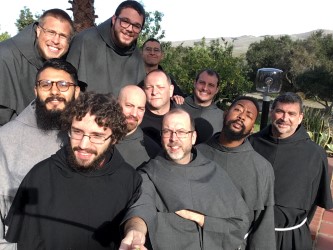
On January 15, 2018, posts and fencing were installed around 3 acres of our farm land near our Shrine of St. Anthony (Ellicott City, MD). After a year to replenish the soil, in the summer of 2019, we hope to plant & harvest fresh vegetables to be sent to the Franciscan Center Center of Baltimore emergency outreach.
JPIC Update…HOW is our land being farmed in Ellicott City, MD?
What is sustainable agriculture and what does it have to do with us?
In simplest terms, sustainable agriculture is the production of food, be it plants or animals, using farming techniques that protect the environment, public health, human communities, and animal welfare. This form of agriculture enables us to produce healthful food without compromising future generations’ ability to do the same.
Ok. But what does that have to do with us?
For many decades, the friars in Ellicott City have leased 85 acres of their property to a tenant farmer. Using the standard methods of farming in industrial countries, the tenant farmer planted one crop on the entire 85-acres each year, requiring extensive use of chemical herbicides and pesticides to protect the vulnerable monoculture from pests and disease. In order that the plant itself could survive the level of herbicide use required for protection, the farmer planted genetically engineered crops designed to withstand very high levels of herbicide application. While the corn crop itself is engineered to withstand the fatal doses of herbicides applied, the bacteria, fungus, and other biological life in the soil that is essential for plant life, however, are killed.
In addition to chemical herbicide and pesticide, standard farming methods employ heavy applications of fertilizers made from fossil fuel. While this fertilizer produces extraordinary plant growth, it also kills the biological life in the soil.
This combination of heavy applications of fossil fuel fertilizers and harsh herbicides on genetically engineered crops, applied repeatedly over the years, has resulted in soil that is sterile of life and depleted of nutrition.
Each year the tenant farmer alternated between a variety of commodity crops like corn and soybeans grown not for human consumption as part of a healthy diet, but rather to be processed into fuel like ethanol, food additives like high fructose corn syrup or hydrogenated soybean oil, or feed for industrial livestock production.
Considering that the method of agriculture currently employed on its land was unsustainable without dangerous—and growing—chemical applications, and that the very crops grown were not even adding to a healthy food source for humans, the friars looked for a different farmer, a different method, and different human outcomes.
The farming method now being implemented on our land is called permaculture (a portmanteau of permanent and agriculture) and restorative or regenerative farming. These concepts all point in the same direction: using farming practices that strengthen the relationships between parts of our ecosystem rather than weakening them. Permaculture tries to use annual crops and perennial crops, as well as land and water use, in ways that let each element strengthen the other elements, creating a perpetual, self-reinforcing food system. Restorative and regenerative farming are, as their names suggest, similar projects: to farm in such a way that the farming itself helps restore the soil and regenerate healthy plants and animals for future generations.
In short, in the past products of the farm were not destined to strengthen human life, they were not fulfilling the mission of the Church. Now, in partnerships, our land is being farmed Laudato Si’ Style!
_______________________________________
A side note from Friar Michael Lasky, OFM Conv.
Our Lady of the Angels Province
Justice, Peace, and Integrity of Creation Ministry
 This past week, I was able to spend several days at our Novitiate, in Arroyo Grande, CA teaching about social justice and care for creation. We explored Franciscan Prayer and Spirituality in light of JPIC and the history of Catholic Social Teaching form 1891 to the present. During a tour of the grounds, I discovered that they have enlarged their vegetable garden and are taking the time to air dry their clothes on an old fashioned clothes line!
This past week, I was able to spend several days at our Novitiate, in Arroyo Grande, CA teaching about social justice and care for creation. We explored Franciscan Prayer and Spirituality in light of JPIC and the history of Catholic Social Teaching form 1891 to the present. During a tour of the grounds, I discovered that they have enlarged their vegetable garden and are taking the time to air dry their clothes on an old fashioned clothes line!
In addition, new apostolates for the novices include both hospital and prison ministry.
